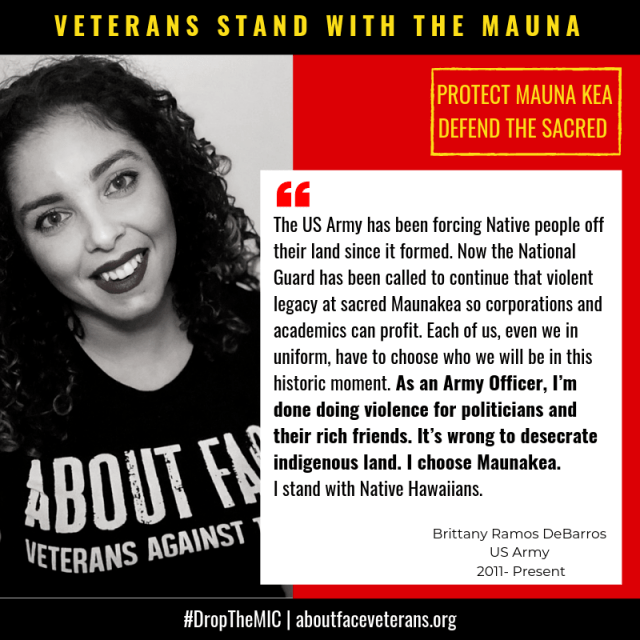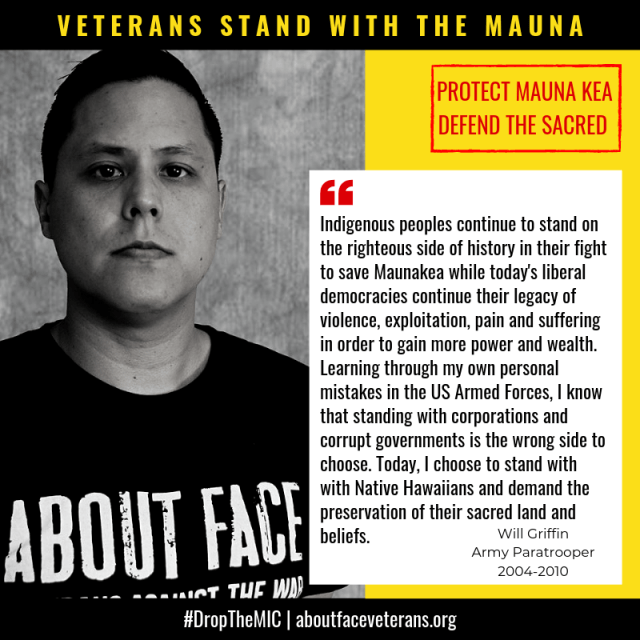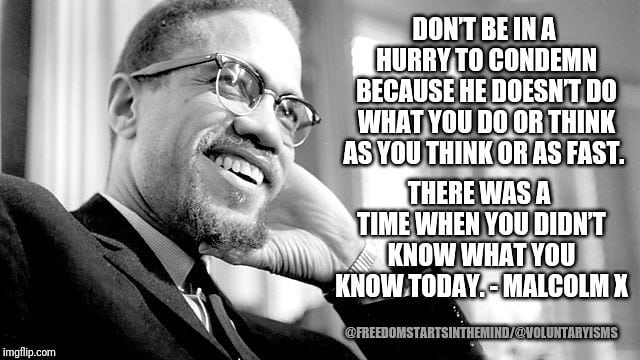
“The greatest purveyor of violence in the world: My own government.” — Martin Luther King
If you want to stop the wars, challenge the empire and deal with climate crisis then support our anti-war soldiers and veterans. Soldiers and veterans carry special knowledge. Sometimes that knowledge starts with the gut-wrenching realization that they have fought, suffered, killed and died in vain — or worse. It’s hard not to hear the echoes of anti-war Vietnam veterans in the words of today’s war veterans. High-stakes betrayal teaches some mighty hard lessons.
“We were lied to, and… we were betrayed…. This really wasn’t about going after Al-Qaeda. This wasn’t about fulfilling that mission of protecting the American people at all. It was a regime change war that was launched under the guise of national security, under the guise of humanitarianism, and, “Look at all these atrocities that this brutal dictator has done to his own people,” and done really for the benefit of corporate interests and oil.” — Tulsi Gabbard [1]
But always they have seen first-hand the horror and futility of war. What we understand as endless war, occupation and empire they know through personal experience. And that personal experience of America’s wars has forced many of the anti-war leaders to undergo a personal and political transformation — from warriors to peacemakers — from waging war to waging peace.

This shift is embodied by the leadership of the Vietnam Veterans Against the War, (VVAW) About Face: Veterans Against War, Veterans for Peace, Military Families Speak Out and Veteran Power. These organizations are the leading edge of a much broader disenchantment with war. According to the Pew Research Center, a majority of US veterans do not support the regime-change wars in Iraq and Afghanistan.

Sharp-sighted, the anti-war vets see militarism everywhere they look. About Face puts it this way.
We are Post-9/11 service members and veterans organizing to end a foreign policy of permanent war and the use of military weapons, tactics, and values in communities across the country. As people intimately familiar with the inner workings of the world’s largest military, we use our knowledge and experiences to expose the truth about these conflicts overseas and the growing militarization in the United States.

What happens “over there” happens right here at home to the poor, black and brown. But some of the first casualties are the soldiers and veterans themselves.
Today’s soldiers and veterans have been treated worse by the US government than any generation of soldiers in well over a century, maybe ever. In an effort to hide war from the public, the war managers put heavy combat duty on approximately 0.5% of the American population. That .5% sees far more combat than soldiers did in WWII, or Vietnam or Korea. So far, 225,000 soldiers have been deployed three times or more and over 28,000 have deployed a soul-crushing five times or more.
The consequences in PTSD, moral injury, suicides and casualties are more than tragic — the empire is eating its own. But, that is what empires do, intentionally or not, and that is also why they collapse. And the enormous burdens veterans carry makes it a real challenge for them to mount resistance to the war machine without a civilian movement to stand beside them.
And make no mistake about it: the government hides war from us by increasing their reliance on mercenaries and terrorists to do the dirty work. Many quietly accept or even deny our use of “moderate rebels” or soldiers of fortune or that US troops have been brutally sacrificed. That is the price of our “American privilege.” Imperial privilege is one of the most widely internalized if little understood form of privilege — inviting us to go about our days oblivious to what is done in our name. As long as the bombs are not falling on us it’s all cool, right? Except now we know that war and climate change are inextricably linked and militarization abroad leads to militarization at home. The empire has become a threat to our rights, our lives, our planet.
Soldiers and veterans need our help but also have so much to teach us: they know the military and they know how to organize. Their training can teach us the kinds of dedication and discipline we need to build a mass movement with real power to disrupt the war machine. With a little help from their friends, soldiers and veterans can once again be leaders in a new anti-war movement. Here are just a few of the past and present projects of the Veterans for Peace, About Face, and the Vietnam Veterans Against the War.
- Drop The MIC Campaign: Raising consciousness about the Military-Industrial Complex and militarism at home.
- Winter Soldier: More than 200 U.S. veterans and soldiers, as well as Iraqi and Afghani civilians, told of their war experiences. The event was inspired by the VVAW’s Winter Soldier Investigation of 1971.
- Deported Veterans Advocacy Project: Assistance and support for veterans facing deportation.
- Veteran Peace Teams: “act as an unarmed, nonviolent presence standing with peaceful protesters, taking a front line if necessary, confronting, documenting, and opposing any and all use of force by police, national guard, regular military, or private contractors against peaceful protesters exercising their right to assemble and seek redress of grievances. Veterans Peace Teams have deployed domestically with the Occupy movement, Standing Rock and Ferguson. Internationally the Veterans Peace Teams have also traveled to Palestine, Okinawa, and Jeju Island, South Korea.”
- Operation Recovery: Stop the Deployment of Traumatized Troops focuses on ending the practice of deploying service members suffering from Post Traumatic Stress Disorder (PTSD), Traumatic Brain Injury (TBI), and Military Sexual Trauma (MST).
- VVAW Archive Project. The VVAW is where it all started and they have become our teachers preserving their anti-war legacy.

I am not a liberator. Liberators do not exist. The people liberate themselves. — Che Guevara
No politician or celebrity will save us and the sooner we give up that illusion the better. Since the social movements are far more effective in creating rapid political and cultural change, the real question is: how do we liberate ourselves? No engagement, no find out. But, the 2016 Green Party campaign pointed us in the right direction.
Ajamu Baraka sets a high standard for how political figures can relate to the peace movement. A veteran himself, Baraka went from being a long-time human rights activist to the Green Party candidate for Vice President in 2016 — returning to the movement as a lead organizer of The Black Alliance for Peace. This is ideal. Baraka’s seamless (but hardly effortless) transition back and forth between electoral and movement work is a prime example of what the Green Party might become: the electoral wing of the social movements.

Are we ready to engage anti-war people wherever we find them? If we can look beyond our electoral obsessions or rigid categories and set our sights on organizing and movement building we might see that there are many thousands of good people that want to stop climate change and end war. We should make the most of it.
Are we going to keep surrendering ground by failing to reach out to them? Is the peace movement so powerful that we can afford the luxury of turning people away because we don’t like their politics or the candidate they support? We should reflect on this:
“What blows are you striking against empire? And, what are your connections to systemic murder and oppression? Tell me that while you judge someone who did bad things at some point in their lives but now are needed in a struggle to undo systematic oppression the world over.” Bob Witanek
The new peace movement faces many problems that can only be addressed in the field — through the struggle and risk that is the hallmark of organizing and activism.
Leave ideological comfort zones behind and learn to ride the wild wind.
Soldiers are Workers but Workers are Soldiers Too.
And, if you think we can confront the military without confronting the problems of the working class consider the fact that armies throughout history have relied on the poor. Workers and peasants have always done the bulk of the fighting.[2] Think on these facts:
- The majority (60% or so) of the military is white but overwhelming working-class.
- Overall, 15% of DOD active-duty military personnel are women. 56% of women are Hispanic or a racial “minority.”
- Racial and ethnic groups made up 40% of the Defense Department active-duty military in 2015, up from 25% in 1990.
- In 2015 blacks made up 17% of the DOD active-duty military – somewhat higher than their share of the U.S. population ages 18 to 44 (13%).
- In 2015, 12% of all active-duty personnel were Hispanic, three times the share in 1980.
- Natives serve in the US military in greater proportion to their population than any other group and have for many decades.
- The Williams Institute estimated in 2010 that 70,000 members of the U.S. military were lesbian, gay, or bisexual.
- In 2014, the Williams Institute also concluded that about 15,500 transgender Americans currently serve in the armed forces.
Is this the enemy? Can we dismiss them all as brainwashed or hopelessly colonized? Or are these allies in the making? We have the very populations that today’s social movement grew out of inside the military. So much depends on how we engage.


The working class joins the military for many reasons. At present, the government does not need a formal draft because an “austerity draft” is in full swing. A country without minimum standards for health care, decent wages and higher education is tracking the poor into the military. Austerity is a favorite weapon of corporate power for many reasons.

Family and community traditions of service are powerful recruiters as well.

And somewhere in the mix is the belief that the US military is “a force for good in the world.” Can we blame people for believing in American Exceptionalism or other ideas central to dominant culture?[3] Can we blame them for doing as their elders have done?

And remember many have their first contact with military recruiters while still children. Help stop this horrid child abuse by supporting counter-recruitment efforts.

Whatever We Do We Cannot Stay At Home
Let’s not slip into what I call “stay at home knowledge,” or what used to be called “analysis paralysis.” A prime example of stay at home knowledge is the widespread belief that because there is no draft that it’s impossible to organize a peace movement. That piece of knowledge leads to retreat and surrender. That is why it’s important to know that there is a draft: it’s a class-based austerity draft that tracks the poor into war. Fight austerity to fight the draft. And remember too that the military resistance during the Vietnam era was often led by people who volunteered — not by reluctant draftees. Same as now.
Our job is to engage — not blame people that have simply grown up in America. Condemnation is easy but it is no way to build the movement.

Remember Standing Rock

Given an opportunity to stand up for the kind of values and ideals that they really wanted to fight for, a new GI and veteran movement is ready to spring to life. We saw that movement come alive when thousands of veterans supported native leaders at Standing Rock in what was the largest demonstration of radical veterans since the Vietnam era.
Not only did they stand with water protectors but in a ceremony of political responsibility and spiritual reconciliation offered heartfelt sorrow for our role in attacking native people and stealing their land.
When soldiers revolt their actions have direct consequences on the military’s ability to maintain the war machine. When a working-class peace movement takes shape it will take the shape of soldier and veteran dissent. Reach out to soldiers and veterans, build a peace movement to support them, and when struggles like Standing Rock break out veterans will answer the call.
The question is: will we?
1/. Tulsi Gabbard as quoted by Matt Taibbi in Whose Afraid of Tulsi Gabbard?
2/. For material in the bulleted list see Pew Research.
3/ For more see: American Exceptionalism and American Innocence by Roberto Sirvent and Danny Haiphong.
Terrific article, Richard Moser. As someone who comes from working poor folks, and has seen the military recruiters swoop down on any family members in high schools, I understand the austerity draft. I’m married to a career military veteran who has drastically changed his views about the purposes of our military interventions. I also support the indigenous protests in Hawaii and elsewhere.
LikeLiked by 1 person
Thanks Constance. Lets fight the austerity draft and the war machine. My regards to your spouse!
LikeLike
Also please share the article to all the soldiers veterans and military families you know.
LikeLike